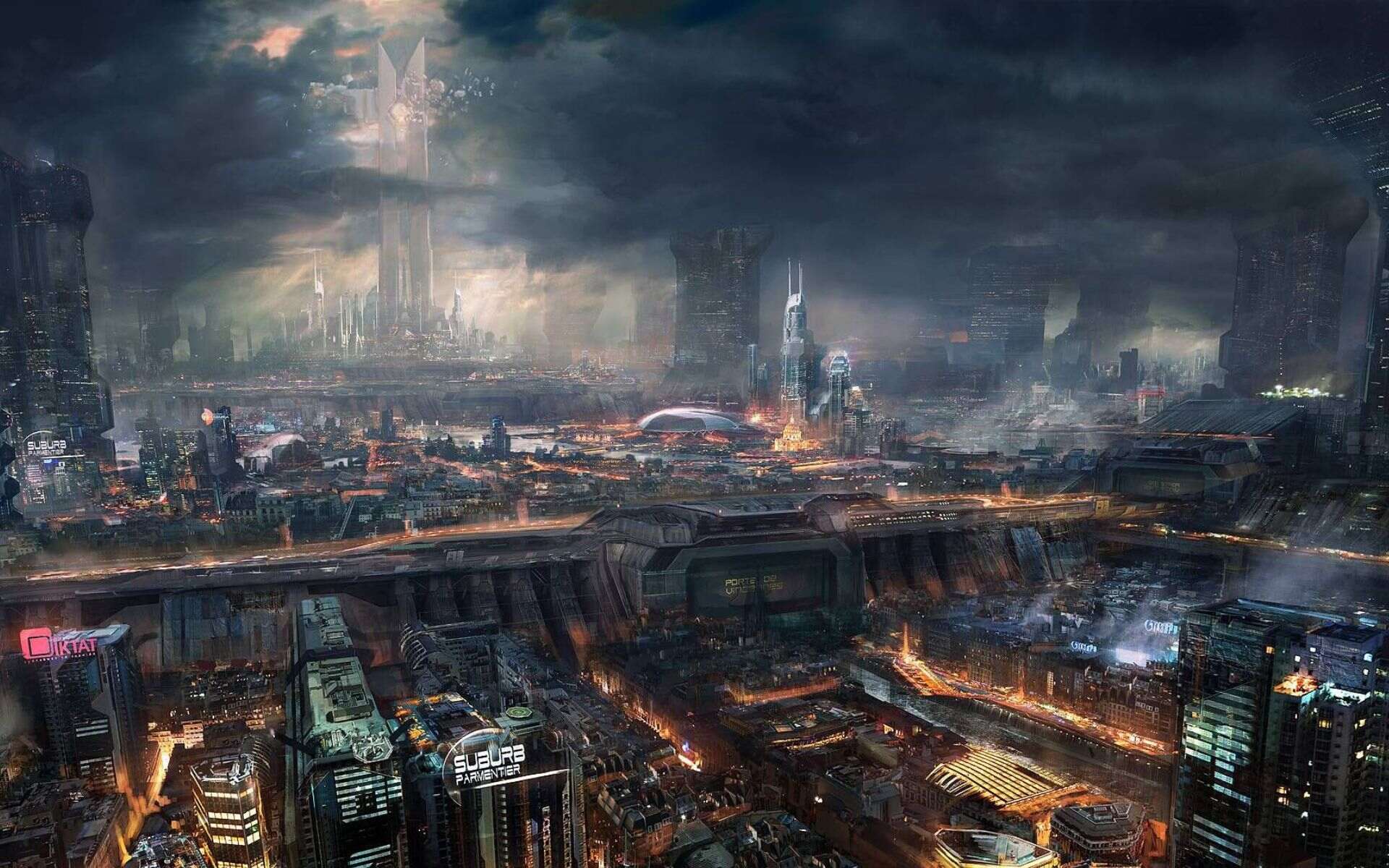
Speculative fiction, a genre that stretches the boundaries of the imaginable, invites readers into worlds of fantasy, science fiction, and horror. Speculative fiction encompasses tales that speculate about worlds beyond our current understanding, often featuring futuristic technology, supernatural elements, or dystopian societies. This genre offers a playground for the imagination, where authors can explore what-if scenarios and readers can lose themselves in the extraordinary. Whether it's a journey through space, a dive into alternate histories, or encounters with the supernatural, speculative fiction holds a mirror up to our society, reflecting our hopes, fears, and the endless possibilities of the 'what could be'. In this introduction, we'll uncover 20 fascinating facts about speculative fiction, shedding light on its origins, evolution, and the impact it has on readers and writers alike.
What is Speculative Fiction?
Speculative fiction is a broad literary genre encompassing any fiction with supernatural, futuristic, or other imaginative themes. This genre includes science fiction, fantasy, horror, alternative history, and more. It's a realm where writers are free to explore the "what ifs" of the universe, pushing the boundaries of reality and inviting readers into worlds of their own creation.
Origins of Speculative Fiction
- The term "speculative fiction" was popularized in the 20th century, but its roots trace back much further. Early works like Mary Shelley's "Frankenstein" (1818) and H.G. Wells' "The Time Machine" (1895) laid the groundwork for what would become a flourishing genre.
Characteristics of Speculative Fiction
-
A key characteristic of speculative fiction is its exploration of alternative realities. Whether it's a universe where magic exists, a future shaped by advanced technology, or a history that unfolded differently, these stories stretch the imagination.
-
Another hallmark is the genre's ability to comment on contemporary society. Through the lens of the fantastical, authors can address real-world issues in a way that's both engaging and thought-provoking.
Popular Subgenres
-
Science fiction and fantasy are the pillars of speculative fiction, each with its own subgenres like cyberpunk, space opera, epic fantasy, and urban fantasy.
-
Horror, while sometimes considered a separate genre, also falls under the speculative fiction umbrella, especially when it features supernatural elements.
Notable Authors and Works
-
Isaac Asimov, Arthur C. Clarke, and Philip K. Dick are giants in science fiction, known for their profound contributions to the genre.
-
J.R.R. Tolkien and George R.R. Martin have become synonymous with high fantasy, creating worlds and histories so detailed they've inspired countless other works.
-
In horror, authors like Stephen King and H.P. Lovecraft have mastered the art of blending the supernatural with the psychological, chilling readers to the bone.
Speculative Fiction in Other Media
-
Beyond books, speculative fiction thrives in movies, television, and video games. Franchises like "Star Wars," "The Lord of the Rings," and "The Witcher" have brought these imaginative worlds to a broader audience.
-
Graphic novels and comics, such as "Sandman" by Neil Gaiman, also offer a visual and textual medium for speculative stories, blending art with narrative in unique ways.
The Role of Worldbuilding
-
Worldbuilding is a critical aspect of speculative fiction, requiring authors to create believable, fully-realized worlds with their own rules, societies, and histories.
-
This process not only supports the plot but also enriches the reader's experience, making the fictional universe as immersive as possible.
Speculative Fiction and Society
-
Through its narratives, speculative fiction often reflects societal fears, hopes, and ethical dilemmas, serving as a mirror to our world despite its fantastical elements.
-
It provides a safe space to explore complex issues like morality, identity, and the impact of technology on humanity.
The Future of Speculative Fiction
-
As technology advances and society evolves, speculative fiction continues to adapt, offering new perspectives on what the future might hold.
-
With the rise of digital publishing and online communities, more voices are being added to the speculative fiction conversation, enriching the genre with diverse stories and characters.
-
Virtual and augmented reality technologies offer new platforms for experiencing speculative fiction, promising even more immersive ways to engage with these imaginative worlds.
Why Speculative Fiction Matters
-
Speculative fiction matters because it challenges readers to think critically about the world around them and the potential futures we could face.
-
It fosters creativity and innovation, encouraging both writers and readers to imagine beyond the limits of our current reality.
-
Ultimately, speculative fiction reminds us of the power of storytelling, not just to entertain, but to inspire change and provoke thought about the endless possibilities of the universe.
A Final Glimpse into Speculative Fiction's Universe
Speculative fiction opens doors to uncharted territories, blending reality with the imaginable in ways that challenge our perceptions. From science fiction to fantasy, and everything in between, this genre offers a playground for the mind, inviting readers and writers alike to explore possibilities beyond the conventional. It's not just about escapism; it's a lens through which we can confront our fears, question our ethics, and dream of futures. Whether you're diving into dystopian societies, parallel universes, or mythical realms, remember, each story holds a mirror to our world, reflecting our humanity in all its facets. So, next time you pick up a speculative fiction book, get ready for a journey that will not only entertain but provoke thought, stir emotions, and maybe, just maybe, inspire change.
Was this page helpful?
Our commitment to delivering trustworthy and engaging content is at the heart of what we do. Each fact on our site is contributed by real users like you, bringing a wealth of diverse insights and information. To ensure the highest standards of accuracy and reliability, our dedicated editors meticulously review each submission. This process guarantees that the facts we share are not only fascinating but also credible. Trust in our commitment to quality and authenticity as you explore and learn with us.


